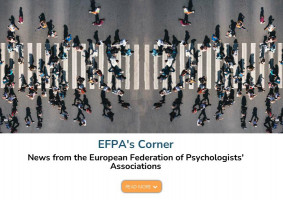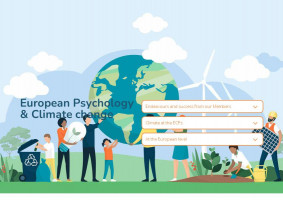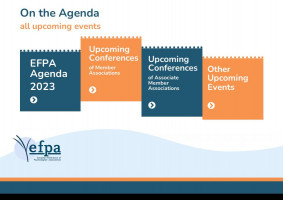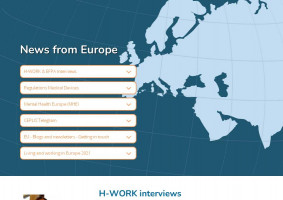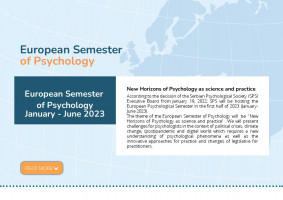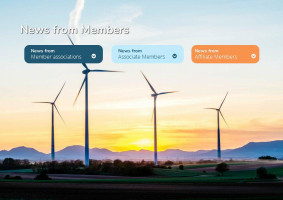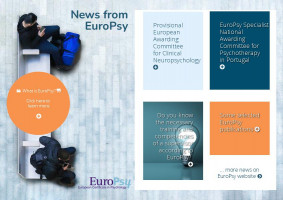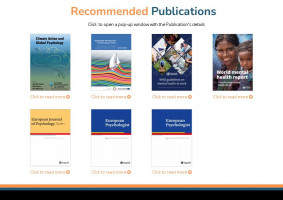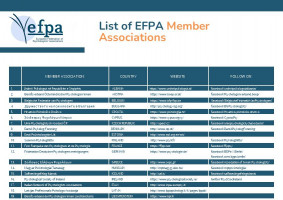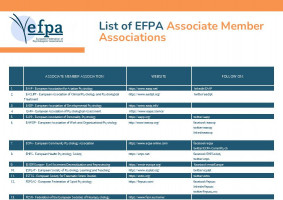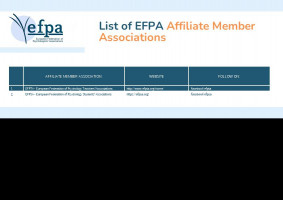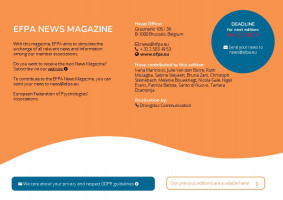_w446_h256_1.png)
January 11, 2023
“The Dutch Parliament acknowledges the important role that human behavior plays in reaching climate goals. Knowledge about human behavior is essential in making effective policies. But unfortunately, in current policy we don’t use all the available knowledge about motives and motivation of people. This has to change.”
-
This quote comes from a written reaction of the Dutch Parliament to recommendations of several psychologists, including Reint Jan Renes, president of the Expert group on Climate and Behavioral Change of the Dutch Association of Psychologists (Nederlands Instituut van Psychologen, NIP). Other members of the Expert Group of NIP include Ellen van der Werf, Sara Wortelboer and Sara Helmink who are members of EFPA’s Expert Reference Group European Psychology and Climate Change.
The recommendations of the psychologists include:
- The structural use of behavioral knowledge in the whole process starting with developing, implementing, evaluating and finally redeveloping measures.
- Clear and structured monitoring and standardization by using (for example) a dashboard.
- Changing the behavior of the government itself in facilitating desired behavior and discouraging unwanted behavior.
- Inviting citizens earlier and more structured in developing policies and measures and make sure everyone feels they've been heard.
The psychologists also gave recommendations about specific topics the government is now working on, like making SMEs and buildings more sustainable and sustainable mobility. At least two more sessions with the government will follow, one about sustainable food and the other about sustainable food consumption.
The Dutch Parliament is willing to put the recommendations into practice and is for example exploring the possibilities of making more structured use of the knowledge of psychologists and setting up a national citizens’ Forum about climate policy. Also the possibilities of a Dashboard to monitor motives, motivation, barriers and resistance of relevant stakeholders is being looked at.
The recommendations of the psychologists and the reaction of the Dutch Parliament will be discussed in February 2023 in the House of Representatives in the Netherlands and the Dutch Parliament will now continue by putting the recommendations into practice. Read the whole article at the NIP website (in Dutch)
Melanie Bouwknegt, Policy Advisor
Nederlands Instituut van PsychologenSuch topics are recurrently targeted by specific symposia on Environmental Psychology, which are typically organised within the annual national conference of the Italian Association of Psychology (AIP congress, usually held in the second half of September each year). Similarly, such an activity is pursued at the international level too, within some of the major scientific events organised by the relevant scientific associations within the Environmental Psychology community (such as, IAPS, IAAP, and the like).
On the professional side, a working group on “Environment, Territory, and Tourism” has been created by the Italian association of professional Psychologists – namely the Gruppo di Lavoro “Ambiente, Territorio e Turismo” at the Consiglio Nazionale dell’Ordine degli Psicologi (CNOP) – where three academicians have been nominated in order to work with three psychologists from the professional community, with the aim of implementing environmental psychology in the professional domain. The group produces documents to support environmental psychology dissemination and professional practice (for example, a document presents a definition of such a professional profile; other documents create agreements with relevant stakeholders’ associations; another document is a White Paper on Nature Based Therapies upon request of specific stakeholders).
Moreover, Community Psychology focused its 9th world conference hold in Naples on the 21-24 September 2022 on “Community Psychology: Community Regeneration. Bonds and Bridges among People and Environments” dealing with climate change issues. This huge event chaired by Caterina Arcidiacono and opened by Christoph Steinebach, EFPA President, brought to Italy psychologists of 45 countries from the 6 continents.The workshop “What can community psychologists do to promote just transformations in the face of climate change?” held by ECPA highlighted what climate justice and sustainable transformations mean and how to intervene in the processes of shaping our collective futures. During the conference Pamela Clinton, the Senior Director for the Office of International Affairs at the American Psychological Association (APA) highlighted with her keynote the organizational efforts to engage psychologists in addressing the climate crisis and the global contributions of psychology to face the current environmental crisis. Last but not least the interactive improvisational theatre “Quality of life: environment, sea, earth and wellbeing” was performed. Improv is an art in which an ensemble of actors creates improptu stories and there we infer that Improv mindset helps expanding the sense of a safe environment as well as the buildup of a welcoming life environmental context.
Back to top
Back to top
European Climate Pact: Anxious about climate change?
Here’s what you can do about itJanuary 30, 2023
The European Commission has recently published an article from the European Climate Pact about climate anxiety and the steps people can take to reduce it. Extracts from their summary of the piece are reproduced below and the full article can be read on their website.
As the Commission says, climate change can a toll on our mental health, triggering ‘climate anxiety' or, more broadly, ‘eco anxiety,' affecting people who are concerned about the state of the climate and the environment. With the 2021 Eurobarometer survey finding that 93% of Europeans think climate change is a serious problem, while 78% think it's very serious, it looks like many of us may experience this kind of anxiety.Climate-anxiety weighs particularly heavy on young people, whose futures are likely to be more greatly impacted. The Lancet, a renowned medical journal, surveyed thousands of children and young people across 10 countries and found that most respondents are worried about climate change. And more than 45% said their feelings about climate change affected them negatively in their daily life.
What can you do about it?
1) Take climate action however small
2) Get connected and channel the Climate Pact's full potential
3) Reconnect with nature
4) Be careful who and what you listen toBy acknowledging our climate anxiety and taking steps to address it, we can turn it into an opportunity to find out what we can do about climate change and actually do it with the added bonus of feeling more connected to nature and other people.
If you're experiencing climate anxiety, why not find a friend who is feeling the same and have a look at which of these practical steps you could take to make a difference to climate change in your everyday lives. Then do it together! And remember to encourage others to do the same by sharing your news on social media using the hashtag #EUClimatePact.
Here you can find the full article with more information and quotes from two European Climate Pact Ambassadors who channeled their concerns into positive action.
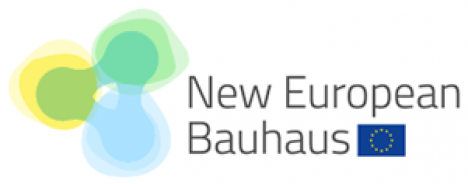

Our colleagues in CEPLIS have recently published information to their membership which includes EFPA about the New European Bauhaus NEB which is a creative and interdisciplinary initiative that connects the European Green Deal to our living spaces and experiences. The New European Bauhaus initiative calls on all of us to imagine and build together a sustainable and inclusive future that is beautiful for our eyes, minds and souls.
Beautiful are the places, practices and experiences that are:- Enriching, inspired by art and culture, responding to needs beyond functionality.
- Sustainable, in harmony with nature, the environment, and our planet.
- Inclusive, encouraging a dialogue across cultures, disciplines, genders and ages.
More information can be found here
CEPLIS by its General Director Prof. Dr. Theodoros KOUTROUBAS explained that "The European Commission is presenting the first New European Bauhaus (NEB) Progress Report taking stock of the achievements in the initiative's first two years as well as the first assessment tool for NEB project: the NEB Compass. The New European Bauhaus has created a broad community of organisations and citizens all around Europe working around a common vision combining sustainability, inclusion, and aesthetics. Key NEB activities – including the NEB Prizes, the first Festival, the NEB Lab – are delivering on their aims and have built a bottom-up transnational network.
Thanks to over €100 million in European funding already allocated, small and large-scale NEB projects are now underway all-around Europe. The Commission will also scale up funding with a further €106 million in dedicated Horizon Europe funds alone for 2023- 24.
The initiative has grown into a movement with an active and growing community from all EU Member States and beyond."EFPA is grateful to CEPLIS Team for sharing this piece.
Back to top
(1)_w1700_h406_1.png)

